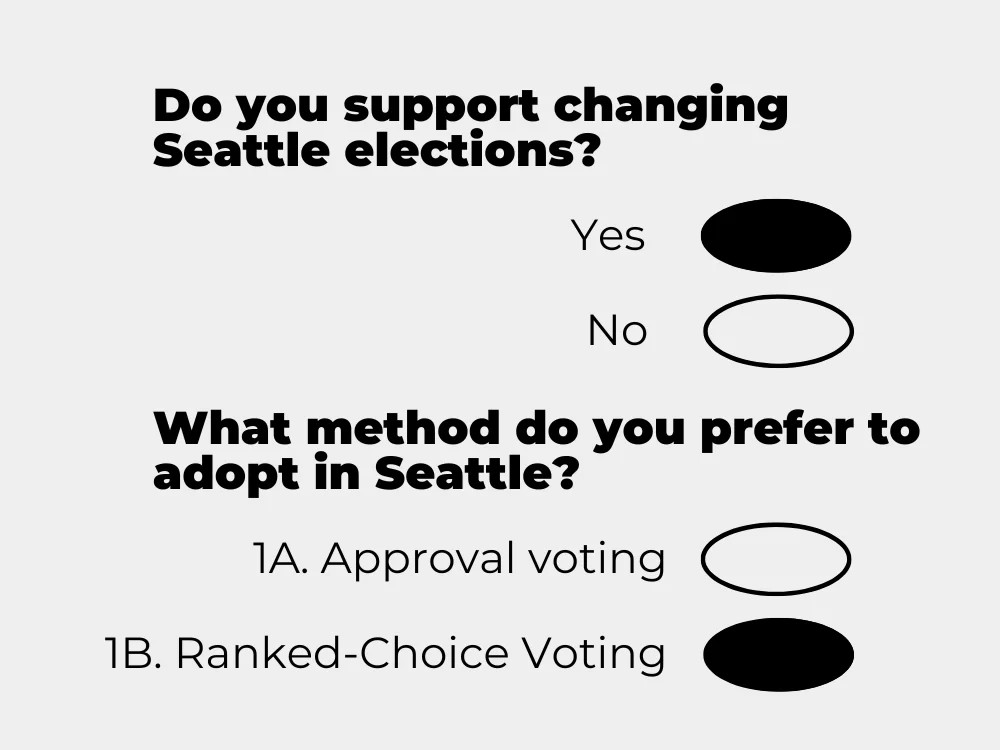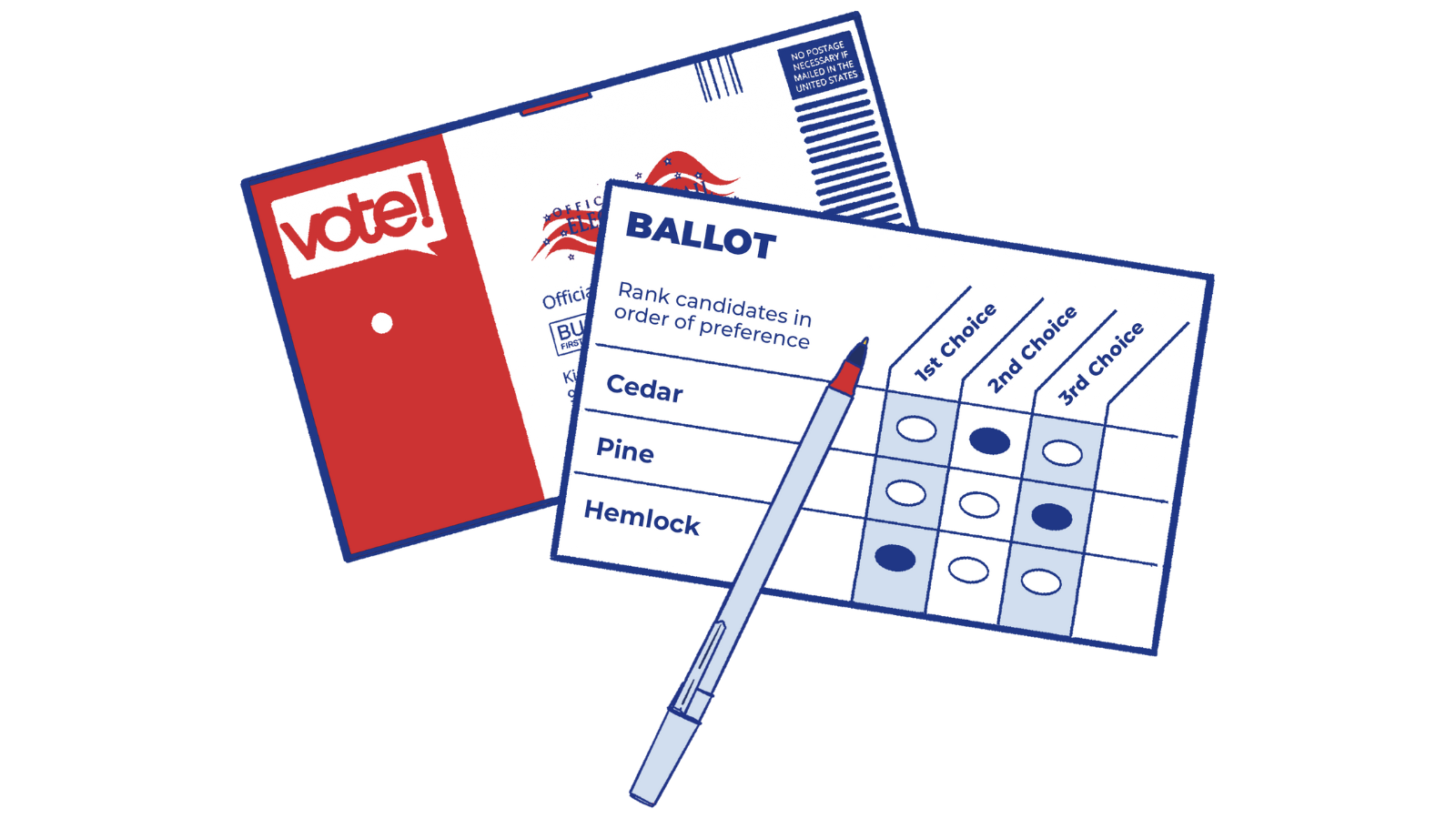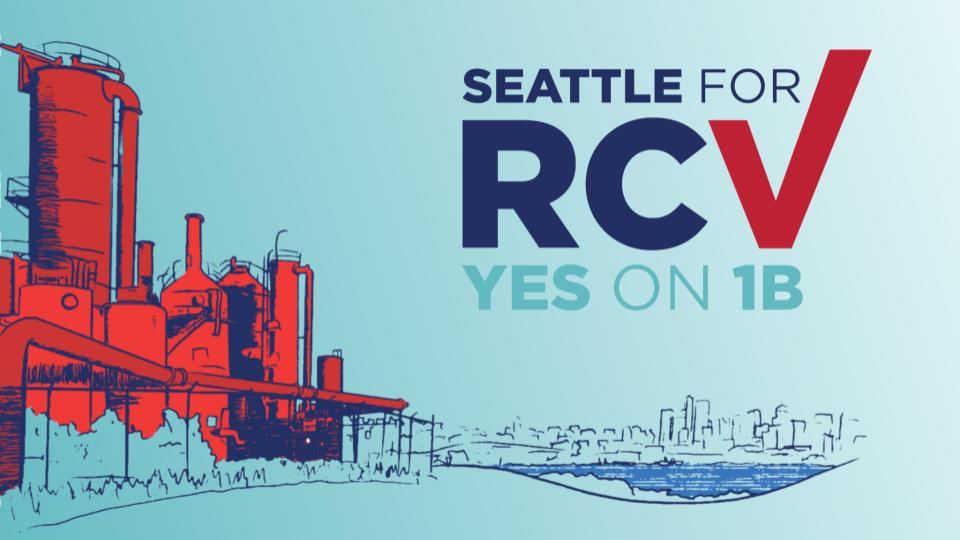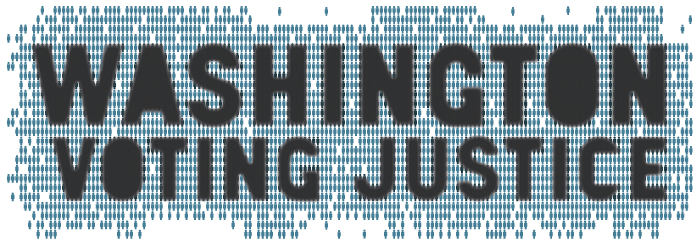Ranked-Choice Voting vs. Approval Voting
Repost from Fuse Washington
This November, Seattle voters will have the opportunity to upgrade our voting system. Proposition 1 on our ballot will give voters three options:
- Keep our elections exactly the same as they are now
- Switch to a process called “approval voting” for our primary elections or
- Switch to ranked choice voting for our primary elections

Many voters are now wondering, “what is the difference between ranked choice voting and approval voting?”
Ranked Choice vs. Approval Voting
In ranked choice voting, you rank the candidates on your ballot in order of preference, putting your first choice first, your second choice second and so on. Then, when the election occurs, all first place votes are counted up and the candidate who received the fewest first-choice votes is eliminated. If that candidate was your first choice candidate, your vote then counts for your second choice candidate instead.
This whole process then repeats, where the candidate with the fewest votes is eliminated and their voters have their votes counted for the next candidate on their ranked list. When only two candidates remain, they are winners of the primary and go through to the general election!

Think of it like going to the donut shop, excited to get a maple bar, only to find out that they’re all out! So you pick your second favorite donut, a chocolate old fashioned, instead.
Since your second place vote isn’t counted until your first place candidate has been eliminated, you can never hurt your first choice by voting for other candidates in a RCV election. Any more than you could accidentally wind up with a chocolate donut if they have maple bars in stock.
This is not the case under approval voting, where you can vote for as many candidates as you like, but in no ranked order. This means that your vote for each candidate is counted equally, and each additional candidate you vote for will water down your vote for your first choice because the winner is determined by whichever candidate gets the most total votes.
What do people think about alternative voting methods?
Ranked choice voting has been used in over 50 places and in over 500 individual elections in the United States over the last 20 years. This means that there is lots of research on how it works and why people find it easy to use. It also means that ranked choice voting has been tested and upheld in court many times over.
The most recent high-profile example of a ranked choice vote was the August 16 congressional special election in Alaska. It was Alaskans’ first time voting by ranked choice, and in an exit poll taken after the election, 85% of respondents said it was “simple” to use.
In contrast, approval voting is largely unproven and completely untested in court. It has only been used a handful of times in two cities, neither of which have a strong Voting Rights Act like Washington does. This also means there is not very much data to analyze or polling to measure whether voters find it complicated or appealing.
The choice is clear

In Seattle, ranked choice voting is the reform that people are rallying around. 33 local organizations, unions, and nonprofits have endorsed ranked choice voting, including members of our coalition like the League of Women Voters and the Latino Community Fund. The other proposal lists no endorsements on their website at all.
It’s one of the factors we took into consideration when we supported the local options bill last year. Along with ranked choice voting’s strong local support, its proven legal track record in states like ours with a strong Voting Rights Act means that we know it won’t violate the “one person, one vote” principle. Approval voting could very well be ruled illegal for violating that same principle.
Finally, the fact that under ranked choice, voting for other candidates will never hurt the chances of your first choice, means that Seattleites will be able to vote for multiple candidates free of worries and candidates will be incentivized to campaign more collaboratively than negatively.
So vote YES on Proposition 1B by November 8 to bring a much-needed upgrade to Seattle voting!

Comments are closed